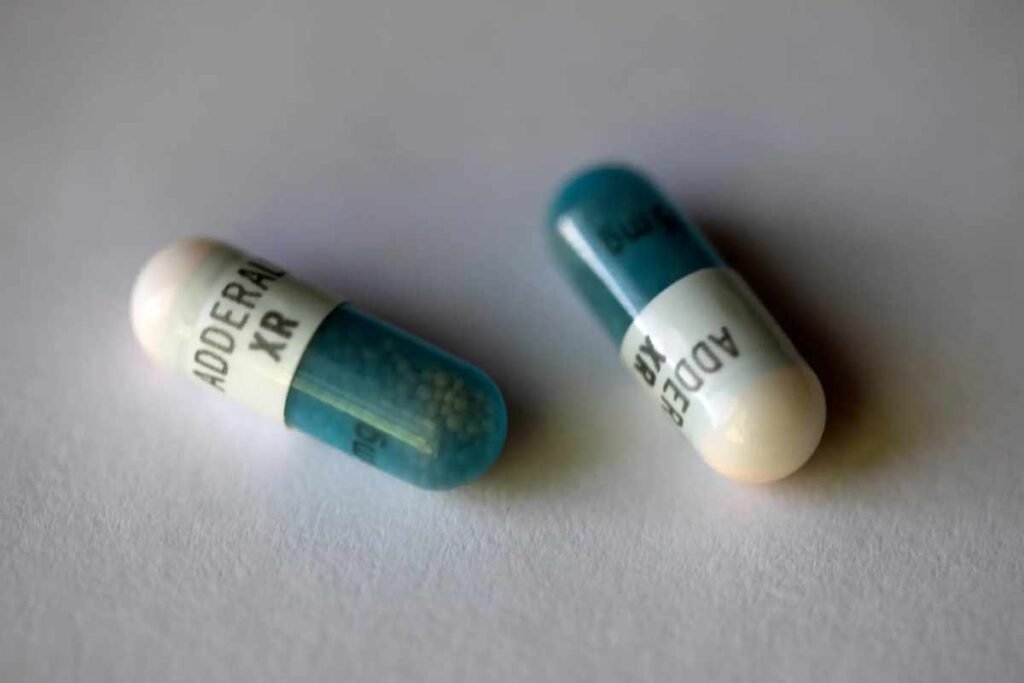A new study published in The American Journal of Psychiatry highlights a significant correlation between high doses of prescription amphetamines, such as Adderall and Vyvanse, and the onset of psychosis or mania in individuals without a prior history of these conditions. According to the study, individuals taking higher doses of these medications face a fivefold increased risk of developing these symptoms compared to those who are not taking stimulants.
Personal Account: A Psychotic Episode While on Vyvanse
Julianna McLeod, a 26-year-old from Ontario, Canada, experienced her first psychotic episode while taking Vyvanse for attention deficit hyperactivity disorder (ADHD) last year. After taking a break from the medication during her pregnancy, she resumed the drug postpartum. However, in the months that followed, Ms. McLeod unknowingly began exceeding her prescribed 40 mg dose, leading to delusions that made her believe she was a “super detective” uncovering vast conspiracies. She also became convinced that she and her baby were being drugged.
While stimulant medications like Adderall and Vyvanse are known to carry risks of side effects, including mania and psychosis, these symptoms are considered rare, affecting about 1 in 1,000 patients. However, new evidence suggests that the dosage of these drugs may play a crucial role in increasing these risks.
Research Findings: High Dose, Higher Risk
The study, led by Dr. Lauren V. Moran of McLean Hospital in Massachusetts, examined patients aged 16 to 35 who were admitted for their first psychiatric hospitalization between 2005 and 2019. Researchers found that those taking higher doses of amphetamines, such as more than 40 mg of Adderall or 100 mg of Vyvanse, had a significantly higher risk of psychosis development or mania compared to those on medium or low doses.
In contrast, no increased risk was found for patients taking methylphenidate-based drugs like Concerta or Ritalin, regardless of the dose. This suggests that amphetamines, in particular, pose a greater risk of triggering psychotic symptoms.
High dosages of ADHD drugs may increase risk of psychosis
Who Is Most at Risk?
The study also found that older patients, specifically those aged 23 and above, were more likely to experience psychosis or mania compared to younger patients. These older patients were often prescribed higher doses of stimulants, further contributing to their elevated risk. Additionally, patients with a family history of bipolar disorder or psychosis, those who used cannabis daily, or those taking non-prescribed stimulants were found to be more susceptible.
Dr. Max Wiznitzer, a pediatric neurologist and ADHD expert, noted that while many patients tolerate higher doses of Adderall without issue, underlying predispositions might be triggered by the medication. More research is needed to fully understand the factors that contribute to psychosis in individuals taking amphetamines.
Implications of the Study
In the United States, prescriptions for stimulant medications have been steadily increasing, with around 79 million stimulant prescriptions issued in 2022 alone. Even though the rate of psychosis among stimulant users is relatively low, the sheer volume of prescriptions means that a significant number of individuals could be at risk.
Dr. Moran emphasized the need for careful monitoring of individuals on medium to high doses of stimulant medications. “It is very disruptive,” she said, noting that many patients need to take time off from work or school to recover from psychotic episodes.
Recovery and Moving Forward
For Ms. McLeod, recovery from her psychotic episode took months. She was taken off Vyvanse and prescribed antipsychotic medications, but the delusions continued to resurface for several weeks. Now, nearly a year later, Ms. McLeod is stable and has resumed taking a much lower dose of Adderall—10 mg daily—without any recurrence of her previous symptoms.
Experts like Dr. Sharon Levy, chief of addiction medicine at Boston Children’s Hospital, believe this study provides compelling evidence that higher doses of prescription amphetamines may contribute to the development of psychosis. Dr. Moran and her team plan to further explore these findings in future studies, including examining national insurance claims data to assess the broader implications.
As prescription stimulant use continues to rise, this study highlights the importance of vigilance, dosage control, and careful monitoring of patients, especially those with potential underlying risk factors.









